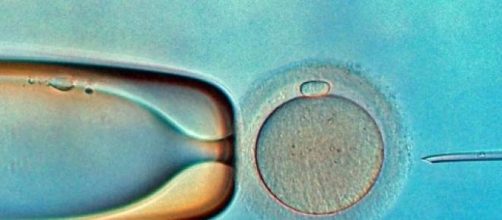A vote in the House of Parliament made GreatBritain the first country in the world to allow the use of DNA from threedifferent people to conceive IVF babiespreventing transmission of serious diseases caused by mutations in mitochondrialDNA.
This technique involves the replacementof faulty mitochondrial DNA (mitochondrial are often labelled “the powerhouseof the cell” since these structures lying outside of the nucleus’ cells provideenergy to our cells) by other healthy mitochondrial DNA from a second woman,giving the baby genes from two women andone man. While this procedures solves a number of genetic diseases, a handfulof experts and influential groups expressed their concerns about ethical andefficiency issues.
As stated in the Guardian, “mitochondriaare not completely understood, and the DNA they hold might affect people’straits in unknown ways.” Doctor Alexandra Henrion-Claude, Research Director atthe French Institute of Health and Medical Research, said to Le Figaro, “mitochondrialtransfer techniques modify all the cells embryo therefore altering the embryo gene pool and non-gene pool".
Mitochondrial transfer creates numerous ethicalquestions concerning the use and status of mothers’ eggs, donors’ rights,psychological and physiological consequences on the babies as well as genetic mutation. Indeed, article 13 ofthe convention of human rights and biomedicinestates: “An intervention seeking to modify the human genomemay only be undertaken for preventive, diagnostic or therapeutic purposes andonly if its aim is not to introduce any modification in the genome of anydescendants.”
The Church of England and the Catholic Churchquestion the ethics and safety of such aprocedure. Moreover, the Catholic Church opposes pronuclear transferbecause a donor’s nuclear material is destroyed along the process.
The Human Fertilisation andEmbryology Authority (HFEA) approved the procedures. Effective mitochondrialtransfer procedures have already been achieved on animals and human cells.
According to the Guardian, around 100 childrenare affected each year by generic defects in the mitochondria. Thus, parents donow have the choice to usemitochondrial donation or not as Dr. Jeremy Farrar, director of the WellcomeTrust, reported in the same newspaper: “Families who know what it is like tocare for a child with a devastating disease are best placed to decide whethermitochondrial donation is the right option for them.”

